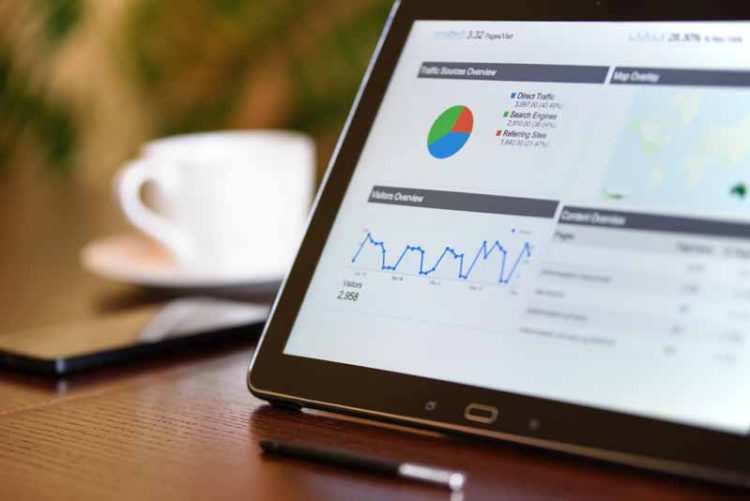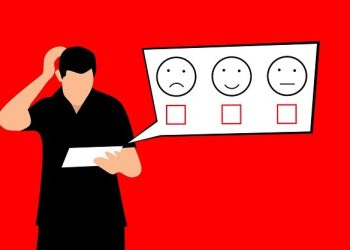The majority of your website traffic comes from one of the following sources:
Direct traffic is when someone types your website URL directly into their browser without using another method to reach you.
Referral traffic is a wide term that encompasses social media, news, and blogs, among other things.
Email traffic refers to the number of people who have opened and clicked on your cold and subscribed email messages.
Facebook, Instagram, TikTok, and other social media platforms are examples of Social traffic.
Paid Traffic – this might include Google AdWords, Facebook Ads, and other PPC services.
Organic traffic is traffic that comes from a Google or Bing search.
Organic traffic is the most efficient and scalable of all the web traffic sources when it works correctly, independent of your company’s level of development.
In comparison to other traffic sources, it is also quite affordable.
Organic traffic—the quantity of individuals that come to your site through search engines—is one of the most significant ideas in SEO.
But what is organic traffic, precisely, and how does it operate in the context of SEO?
Let’s get started!
What is Organic Traffic, and How Does It Work?
Simply explained, organic traffic is traffic that originates from the search engine results pages of Google and other search engines (SERPs).
Consider the following scenario: you do a search for a certain subject, such as “bike repair shops,” and you get a list of results. You visit the brand’s website by clicking on one of the results. You are now considered an organic visitor, and your traffic will be included in the overall organic traffic for the brand.
How Do You Increase Organic Traffic?
Because organic traffic is so essential, aiming to increase it may have a significant impact on total sales and income.
While there are industry, promotional, and platform differences when it comes to increasing organic traffic, the foundations remain the same:
Produce Exceptional Content. If you want to outrank large corporations for certain keywords, your content must be superior than that of competitors.
Promote Your Outstanding Content. While this is a simple concept in theory, it is the heart of the complexity of SEO and link development. Email may be used to promote content, but the outreach should result in backlinks and brand mentions from other high-quality websites.
What’s the big deal about organic traffic? To begin with, all traffic is beneficial to your website in general. If your site has a 2% conversion rate and you generate $150 on average every transaction, the difference in income between 1,000 and 10,000 visits is $3,000 to $30,000. Increasing organic traffic will result in an increase in overall income (and help you achieve your other goals).
Organic traffic is particularly important for two reasons:
1. It is pertinent. You may manage the sorts of individuals that visit you organically by improving your organic rankings for relevant keyword words and avoiding optimization for irrelevant ones. To put it another way, you can ensure that your visitors are from your target demographics and are at the correct stage of the purchase cycle.
2. You have (some) influence over it. Technically, you can boost your visitor statistics in any category, but SEO makes organic traffic extremely accessible.
As part of SEO, organic traffic is important.
Let’s look at how organic traffic works as a result of an SEO effort in more detail. If you’re unfamiliar with SEO, it’s a collection of diverse methods and approaches all aimed at improving your search engine ranks. These may be grouped into the following categories:
Strategic planning at the highest level. You must first analyse your high-level plan. Do you wish to compete on a national level or avoid competition by targeting local keywords? What demographics are you aiming for? Will you employ a mix of head keywords and long-tail terms in your search? If so, which ones are the most crucial? At this point, research is critical.
On-page SEO that is technical. Many technological aspects might have an impact on how your site ranks (and how it functions for your users). Google and other search engines, in general, favour sites that are well-designed and follow best practises. Technical optimization is a realistic necessity if you want any chance of ranking. Sites that load fast, are mobile optimised, and are simple to crawl all have a significant advantage.
Content created on-site. In addition, you’ll want a steady supply of high-quality onsite material. This will aid in the development of your website’s authority while also allowing you to target certain keywords and phrases. These sites may also be used to rank in search engine results pages (SERPs).
Offsite content and link building. Link building helps you to gain and establish links linking back to your domain, frequently with the use of offsite material, enhancing your authority (and therefore your capacity to rank). It’s also a strategy to get visitors via referrals. While it is theoretically feasible to optimise for search engines without link building, it is a practical need for most companies if they want to rank. Check out our SEO Link Builder’s Guide for additional information on link building.
Consider these high-level judgments to be the tip of the iceberg when it comes to Google’s ranking signals, which number in the hundreds.
You’ll improve your domain authority and page-level authority as you implement these SEO methods, which are trustworthiness ratings that tell Google and other search engines that you’re worth ranking. You’ll get more relevant for certain keywords and phrases as well. When people search for such keywords, you’ll eventually rank higher for them.
The higher you rank, the better; the more you fall from the top, the lower your returns get. You’ll have a much harder time generating organic traffic if you’re ranked lower than rank 10. You’ll start to get traction around rankings 2-5. However, you won’t get the majority of traffic from that phrase until you reach rank 1.
This is when organic traffic starts to become such a crucial statistic for SEO performance, which is why so many individuals engage professional SEO services.
Because search traffic varies per keyword phrase, a rank 1 position for a keyword with 100,000 monthly searches is considerably superior than a rank 1 position for a keyword with 5,000 monthly searches. In instance, a position of rank 8 for a phrase with 100,000 monthly searches may be preferable than a position of rank 1 for a term with 5,000 monthly searches.
As a consequence, if you spend too much time worrying about rankings, you’ll get poor outcomes. Company A may have ten rank-one positions and 150,000 monthly organic visits, but Company B may have just one rank-one position and a variety of other page-1 positions for long-tail keywords, but 180,000 monthly organic visitors. Though additional factors (such as conversion rate and traffic relevancy) must be evaluated before we can declare Company B the winner, organic traffic is a terrific predictor of success.
As a result, many SEO Agencies employ organic traffic as both their main key performance indicator (KPI) and their strategy’s guiding light. All of their choices are made with the goal of increasing organic traffic the most, and they utilise organic traffic to determine if their techniques are effective.
How can you track organic traffic?
So, how do you quantify this crucial SEO metric?
You could use a variety of third-party marketing analytics and SEO solutions to track your organic traffic (along with a variety of other KPIs), but we prefer Google Analytics. Google Analytics is both free and simple to use, and it provides an instant method to measure organic traffic for your website in a variety of ways.
Log into Google Analytics and go to the main Reporting page to see your account. Check out the left-hand panel and select Overview under the Acquisition heading.
You’ll get a breakdown of your traffic from several sources, such as Organic Search, Direct, Referral, Social, Email, and Paid Search. You can also examine statistics for a certain time period by clicking the date range in the top right.
You may produce a variety of reports linked to your organic traffic as you get more comfortable with Google Analytics. For example, you may examine typical users’ behavioural patterns once they discover your site organically, track conversion rates particularly for organic visitors, and see a (limited) analysis of search words that drove individuals to your site.
Click-Through Rate and Position (CTR)
Organic traffic consistently rises as your ranks rise, independent of the phrases you’re targeting or the pages you’re using. Slight variations are possible, but they are the exception rather than the rule.
However, improving your SERP rankings isn’t the only approach to boost your organic traffic. Other techniques to enhance organic traffic include improving your click-through rate (CTR).
Appropriate audience targeting is a must; you must target keywords that are relevant to your target audience and provide material that they want to read.
Beyond that, tweaking your headlines and meta descriptions for clicks is the greatest technique for increasing your CTR. The major headline shown in SERPs is your title tag; you’ll have 72 characters to explain what visitors will discover if they click through. The expanded description is your meta description; you’ll have 172 characters here to explain your content in more detail and build a strong call-to-action (CTA).
Your main objective here is accuracy; you don’t want to lead them to a website that contains irrelevant or unexpected information. Persuasion is your secondary objective; encourage these visitors to take action by clicking.
Caveats on Organic Traffic
We’ve spent the most of this post extolling the virtues of organic traffic as a metric and a strategic emphasis, but there are a few crucial caveats and factors to keep in mind when using it in your own SEO campaign:
Organic traffic isn’t necessarily the best indicator of success. Just because you have a lot of visitors doesn’t imply you’re attracting the appropriate folks. You may be dominating the SERPs for a set of keyword words, but if those terms aren’t targeting the correct demographics, aren’t matching search intent, or are drawing individuals at the wrong stage of the purchase cycle, your potential is severely limited.
Organic traffic isn’t a good investment. The most crucial indicator to track in SEO is your return on investment (ROI). It shows how much of a benefit you’re receiving for the money you’re spending. However, although organic traffic might indicate if the mechanics of your SEO plan are working, it does not always imply a positive return on investment. For example, you might have a lot of organic traffic (and it’s rising), yet still overpay for SEO services or have a poor conversion rate.
Organic traffic isn’t the sole source of SEO traffic. Because SEO stands for search engine optimization, all of the traffic generated by these strategies should originate from search engines, right? Wrong. Offsite content production, SEO link building, and social media marketing are all pathways for SEO growth that will provide referral traffic, social traffic, and even direct traffic in a solid SEO campaign. Even if they provide less traffic than your organic channel, they are all worth investigating.
Despite these drawbacks, organic traffic should be one of your top priorities when creating and implementing an SEO strategy.
Do you want to increase the organic traffic to your website? Are you in the midst of an SEO campaign and need more resources to meet your objectives?
















